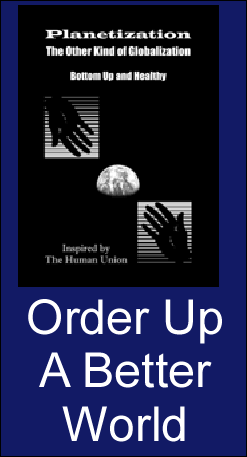---------------
In response to September 11 the Australian Government has proposed new >"anti-terrorist" laws. The Australian Security Intelligence Organisation Legislation Amendment (Terrorism) Bill would give ASIO unprecedented powers to detain people indefinitely without charge or trial. People detained would not have the right to silence or to contact a lawyer. Failure to provide information, records, or "things", could be punished by five years' imprisonment, with the onus on the accused to prove their innocence.
The bill does not exempt or protect vulnerable individuals or groups, such as people with psychiatric or intellectual disabilities or even children.
In addition, detainees could be held incommunicado, thus empowering ASIO to "disappear" people, leaving family and friends with no clue as to their whereabouts or welfare, and no right to information.
Although the government has promoted the measures as a necessary response to terrorism, it is clear that the proposed legislation extends well beyond extreme acts of politically motivated violence, such as bombings and hijackings. While the broad definition of terrorism employed in the bill is out of kilter with the public's perception of terrorism, it is in keeping with the way terrorism" is conceived in security circles. Groups such as ASIO tend to view all social movements with suspicion, adopting the view that it is but a short step from a protest march to a bomb. The 1970s Hope Royal Commission on Intelligence and Security reported that ASIO had a "tendency to think of anyone they chose to call 'left wing' as subversive".
The definition of terrorism employed in the bill is wide enough to encompass many forms of protest and industrial action. Police and politicians sometimes find it expedient to vilify protesters and unionists by exaggerating their resort to violence. Protests may draw attention to politically damaging social, economic or environmental issues that the government would prefer ignored. Politicians sometimes "talk up" the potential for violence in order to undermine support for a protest, industrial action or cause.
Police sometimes exaggerate the risk of violence to deter people from participating, or in line with their own ideological assessment of the worthiness of the cause and those involved. In hindsight the protests against the Vietnam War during the 1960s and '70s are generally seen as reasonable expressions of political dissent. At that time, however, conservative politicians and police regularly characterised anti-war protesters as "louts" and referred to demonstrations as "insurrections" that needed to be stamped out rather than dealt with as democratic expressions of political opposition.
It is perfectly conceivable, under the provisions of the bill, that those unionists and community members involved with or with information about the Maritime Union of Australia's industrial action in 1998 - a category including thousands of people Australia-wide - could have been detained and forced to answer questions and produce records. Such detention, particularly if targeted at the union's leadership, would have given the Patrick company and the Howard Government - which had a keen interest in waterfront reform - a distinct strategic advantage that in all likelihood would have changed the outcome of the dispute.
In addition, the detention of union leaders as suspected "terrorists", or at the very least as people suspected of having information about "terrorism", would have provided the employer and the government with an effective propaganda tool in the public relations war that raged around the waterfront dispute.
Detention without recourse to the courts and without traditional due-process protections dramatically increases the likelihood of abuses of power and miscarriages of justice. Similar legislation was passed in Britain in 1974 after an IRA pub bombing. The first person arrested under the act was Irish national Paul Hill. After enduring psychological and physical violence, he and three others, popularly known as the Guildford Four, "confessed" and were convicted of a bombing they did not commit. Between them they spent a total of 60 years in prison before being released. This was only the first in a series of infamous miscarriages of justice facilitated by the legislation.
Australia's Attorney-General describes the measures contained in his bill as "extraordinary". Yet if it becomes law the draconian measures it embodies will become a permanent part of the Australian political landscape.
Totalitarian regimes blur the line between politics and crime so that any oppositional politics may be defined as a crime. This bill, and related "anti-terrorist" bills, define terrorism broadly enough to include dissent, industrial action, and political opposition, and open the way for arbitrary detention. This undermines Australia's claims to being a liberal-democratic state.
Far from protecting citizens from terrorism, this bill is a recipe for state terror against citizens.
www.teknet.net.au/~eye/propaganda/articl...
Anti-Terrorism Legislation - Australia
By various
Posted on the Independent Newswire on 10 May 2002
Ref: www.indymedia.org/front.php3?article_id=179400&group=webcast
To next article in SIX SIX SIX
Fascisizing the World - Shoot to Kill -
Nation-States Line Up to the New SS World Order
- Attacking the Democratic Constitutions
Phase 1 “Know” Menu
Looking for Justice in All the Wrong Places Menu
Insights-Reflections-Analysis Menu
Covering Up the Cover Up Menu
The Reality of Israeli Zionist Infiltration Menu
Are We On the Path of Expanding Liberty or Tyranny?
Declaring Independence and A State of Global Rebellion Menu
A Picture of the Stars and A Voice from the Ethers Menu
Interim Addendums During Phase 1
<
/td>
